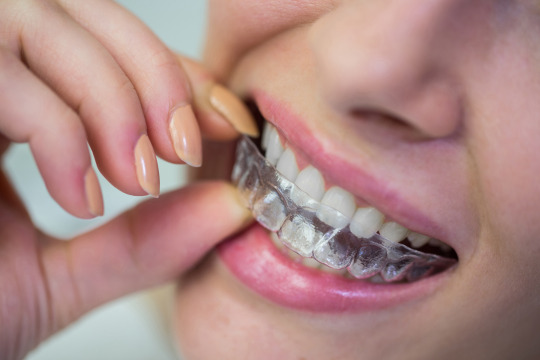Don't wanna be here? Send us removal request.
Text
Protecting Your Smile: The Importance of Dental Mouthguards

Your smile is a valuable asset, and protecting it should be a top priority. Dental mouthguards are an often-overlooked tool that can make a significant difference in preserving your oral health. Whether you're an athlete, someone who grinds their teeth at night, or just concerned about the safety of your teeth, this article will explore the different types of dental mouthguards and their importance in maintaining a healthy smile.
The Types of Dental Mouthguards:
Sports Mouthguards:
If you're an athlete, especially in contact sports like football, basketball, or boxing, a sports mouthguard is essential. They provide a protective barrier that can absorb and disperse the force of an impact, reducing the risk of broken teeth, jaw injuries, and soft tissue damage. Custom-made mouthguards from your dentist offer the best fit and protection.
Nightguards for Teeth Grinding (Bruxism):
Teeth grinding, or bruxism, can be detrimental to your dental health. It often occurs during sleep and can lead to worn-down teeth, jaw pain, and headaches. Nightguards, also known as bite splints or occlusal guards, create a protective barrier between your upper and lower teeth, preventing further damage.
TMJ Splints:
Temporomandibular joint (TMJ) disorders can cause jaw pain, headaches, and difficulty in opening and closing your mouth. TMJ splints are designed to reposition the jaw, reduce muscle tension, and alleviate these symptoms.
The Benefits of Using Dental Mouthguards:
Protection from Injury: Whether you're on the field or in bed, mouthguards provide a cushioning effect, reducing the risk of injuries and damage to your teeth and oral structures.
Prevention of Teeth Grinding Damage: Nightguards protect your teeth from the excessive wear and tear caused by grinding or clenching, preserving your natural teeth.
Improved Sleep Quality: Nightguards can alleviate symptoms associated with bruxism, leading to better sleep and fewer headaches.
Treatment for TMJ Disorders: TMJ splints can be a part of the treatment plan for managing TMJ disorders, providing relief from pain and discomfort.
Maintenance and Care:
To get the most out of your dental mouthguard, it's essential to maintain proper hygiene:
Clean regularly: Rinse your mouthguard with cold water before and after each use, and brush it with a soft toothbrush and mild soap or toothpaste.
Store properly: Keep your mouthguard in a clean, ventilated case to prevent damage and bacteria buildup.
Regular check-ups: If you use a nightguard or TMJ splint, visit your dentist regularly to ensure it continues to fit properly and provide effective protection.
0 notes